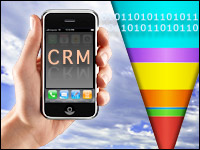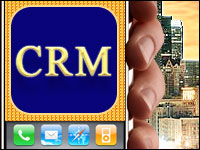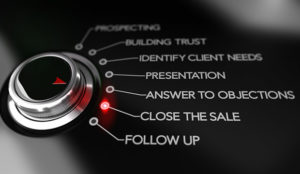
Showrooming enabled by the proliferation of smartphones has become the bane of brick-and-mortar retailers. Basically, consumers waltz into a local Best Buy or similar big box store, find the product they are thinking of buying and check it out. So far, so good, from the retailer’s perspective — only then they go online, sometimes even while standing in the store aisle — to buy it from an etailer like Amazon.
Such behavior is in part responsible for Best Buy’s lackluster performance of late. Now retailers are fighting back with their own mobile strategies to best online retailers in this scramble for sales. Retailers are also bringing to the table advantages such as superior customer service and in-store tech support and setup to tip the scales in their favor.
Geofencing Plus Mobile CRM
“Retailers are getting smarter, using such technologies as geofencing and mobile CRM,” Craig Elimeliah, VP and director of technology and digital solutions at RAPP, told CRM Buyer.
This mix of technologies allows retailers to market to consumers directly when they are in the store, allowing them to push coupons or special offers on the spot, he said. Or even just say hello.
“That type of serendipitous engagement, with no strings attached — just a ‘hello Craig, welcome to our store’ — means a lot to consumers,” Elimeliah said.
A Value-Add Piece
Most retailers now have the basics covered, Jordan Socran, vice president of business development for Radialpoint, told CRM Buyer. That is, they have mobile Web pages for consumers to browse inventory and place orders.
Increasingly, though, brick-and-mortar retailers are adding a service component to these mobile offerings to build a post- purchase relationship, he added, which is something that online retailers are not as well equipped to offer.
“These would fall into the category of device-based applications that provide quick access to a concierge service to help with a purchase,” said Socran.
The Face-to-Face Play
Face-to-face contact with customers, coupled with mobile CRM technology, appears to be brick-and-mortar retailers’ secret sauce.
“The most important thing for retailers to do is equip sales associates with technology, such as an app, which prepares the employee for face-to-face interactions by providing a complete, 360-degree view of the customer,” Al Beery, software retail expert at Pitney Bowes, told CRM Buyer.
“Showrooming can be damaging to a business. However, it also presents an opportunity for retailers to rethink their strategy, leverage their in-store advantages, and make on- and offline channels complement each other,” he said.
Enter the Tablet Era
Tablets — in the hands of sales people, that is — are pushing these strategies up a notch. Earlier this spring, Nordstrom equipped its sales people with tablets and an iPad app that lets customers buy made-to-measure Joseph Abboud suits. Measurements are taken by the sales representive and entered into the app. The order is then sent directly from the iPad to a tailoring facility and shipped to the customer within two weeks.
Nordstrom is typically a retailer that pushes the envelope with customer service, so its foray into this particular style of service is not surprising.
Other retailers are following suit. Mutual Mobile, for example, recently unveiled an app that lets shoppers browse catalog options and availability using an iPad. Men’s clothier J.Hilburn, car manufacturer Audi, and commercial real estate service Costar are already using the app.

























































This is a great technique and could be just what these big brick ‘n mortars need to stay alive. They’re getting killed on price. The only thing they have going for them is the personal customer service angle and that’s where the mobile CRM can optimize their success.
I’ve seen mobile CRM successful for other client exchanges in products like JobNimbus, but if they can get the CRM optimized for them this could be their savior.